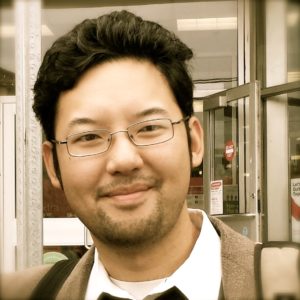In recent months I have been delighted by the exposure Chinese Church Voices has provided to indigenous perspectives on faith and mission. The simple blog provides an important window for non-Chinese speakers into questions Chinese Christians are raising. In turn, it provides those of us in the West with an opportunity for greater dialogue and understanding.
It is in this spirit of mutual learning that I share this response to a recently posted reflection on the state of urban ministry in China. The author articulates the difficulty of urban mission in China given Christianity’s lack of social influence and most churches’ unwillingness to engage mainstream Chinese culture. In conclusion, the author calls the Chinese church to reverse such trends: “The church has the opportunity to take its place within a new mainstream culture that is taking shape within China. If we can seize the opportunity and pour our faith into the future, then we will see God’s gracious blessings.”
I write this post to reinforce the author’s point amongst Western observers and workers. The dynamics of “urban mission” and how it ought to be done is of vital importance to anyone serving in China today. It is predicted that 70% of China’s population will be urban by 2030. Alongside this backbreaking pace of urbanization are a minefield of social, cultural, and economic concerns including reformation of land management, household registrations, and local governance while balancing urban planning with environmental concerns. Does the church have a role to play in tackling these problems? It should. Just how it ought to engage is the great question and challenge of our time. Another post on Chinese Church Voices reflects this struggle, pondering Christianity’s role in the new urban middle class.
Consider this case study. How ought/could the church respond?
LEAVING THE LAND: Urban, But Left Behind from Jonah Kessel on Vimeo.
While traditional conceptions of mission in many Christian circles focus solely on the work of evangelization and discipleship, those who have been doing “urban ministry” in the U.S. have long understood mission to be a holistic endeavor that addresses both individuals and society at large – especially of the oppressed and marginalized. The African-American church has been holistically ministering in the city for decades providing affordable housing and family services. Current renewal of U.S. cities has reignited questions of what church and ministry ought to look like at large. Timothy Keller of Redeemer Presbyterian in New York City identifies five ministry fronts for holistic urban mission in global U.S. cities: engagement with secular people, development of Christian community, service to the city and the poor, integration of faith and work, and commitment to church planting. This is one increasingly popular framework for urban mission in the United States.
The author is only partially right about the church’s lack of social influence – Christianity in China may not have the kind of clout it has in Western civilization, but it has far greater public voice than other religious traditions. Evan Osnos has called the church, “China’s largest nongovernmental organization.” Such a title is not without some power. Urban ministry is happening in China, but greater inquiry, exploration, and dialogue concerning its dynamics is necessary.
There are many frameworks for urban ministry, some of which have been explored here at ChinaSource, but how can they be contextualized and practically applied to equip urban Chinese churches for holistic mission to the unique challenges Chinese cities face? How does a church reach out to displaced farmers, migrant laborers, and the ant tribe of young college graduates? While the Chinese church appears resource poor materially, it can be rich in community and care. How do senses of belonging play out in the context of displacement often felt in dense and rapid urbanization?
If there is a new point of missional dialogue between Western and Chinese churches, it ought to be around such questions. As China grapples with its seam-busting urbanization, the church must be more than one of the buildings hidden in the shadows of its skyscrapers. It must have a presence that reflects the fullness of the Gospel for all people, especially the marginalized, Christian or not.
Photo Credit: Joann Pittman

Easten Law
Easten Law is the Assistant Director for Academic Programs at the Overseas Ministries Study Center at Princeton Theological Seminary (OMSC@PTS). His research focuses on lived theology, public life, and religious pluralism in contemporary China. He completed his PhD at Georgetown University, an MDiv at Wesley Theological Seminary, and an MA …View Full Bio
Are you enjoying a cup of good coffee or fragrant tea while reading the latest ChinaSource post? Consider donating the cost of that “cuppa” to support our content so we can continue to serve you with the latest on Christianity in China.